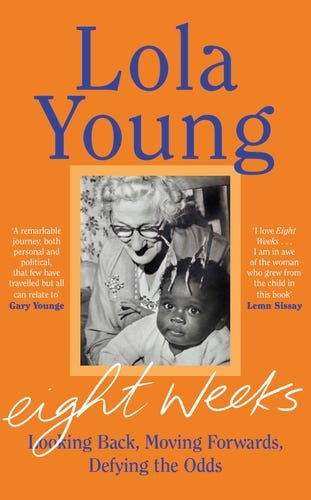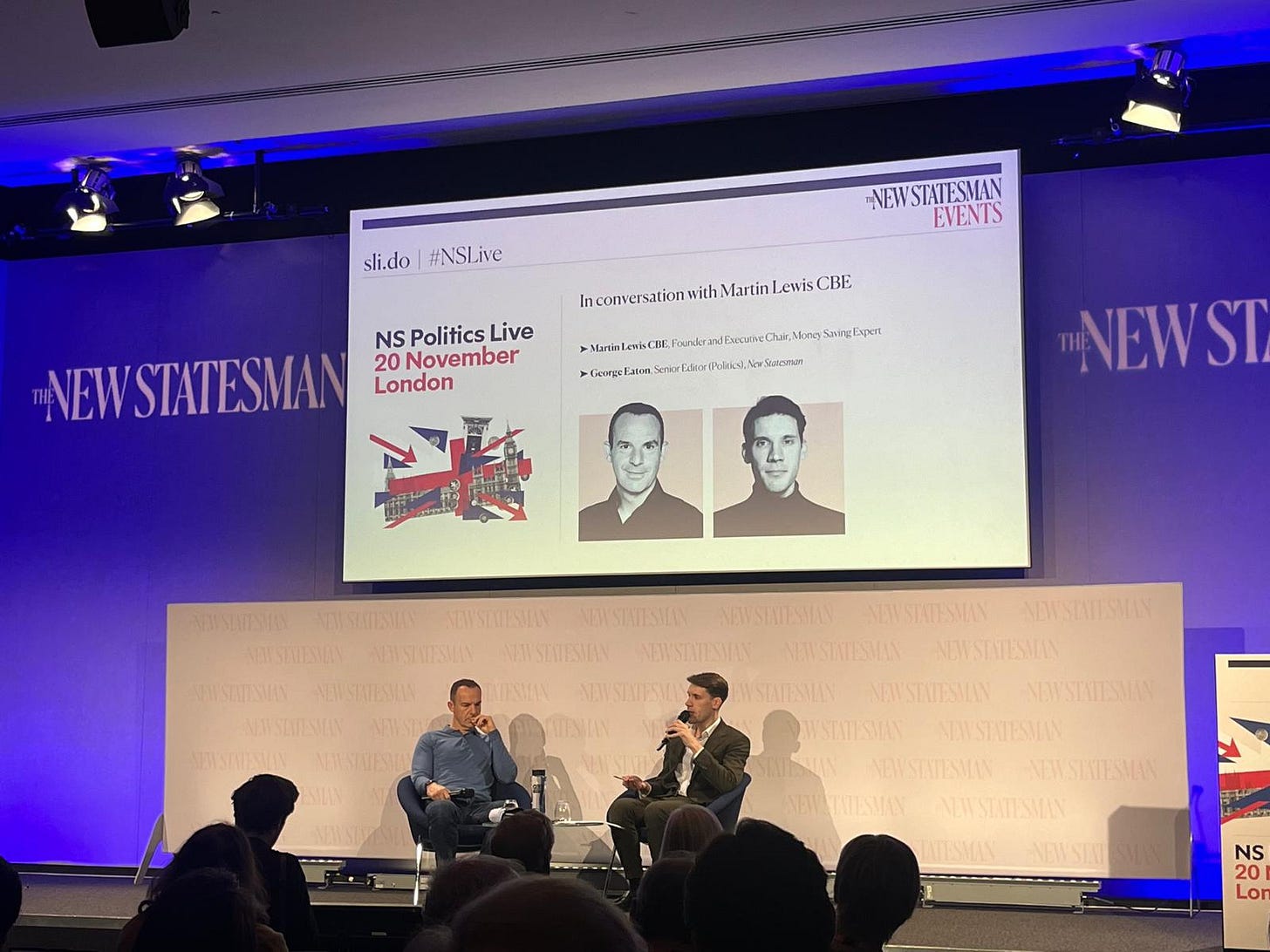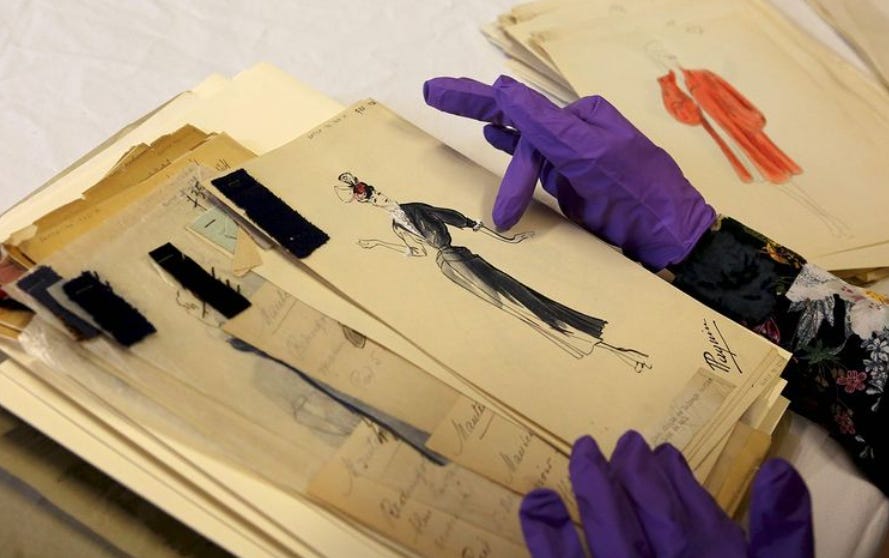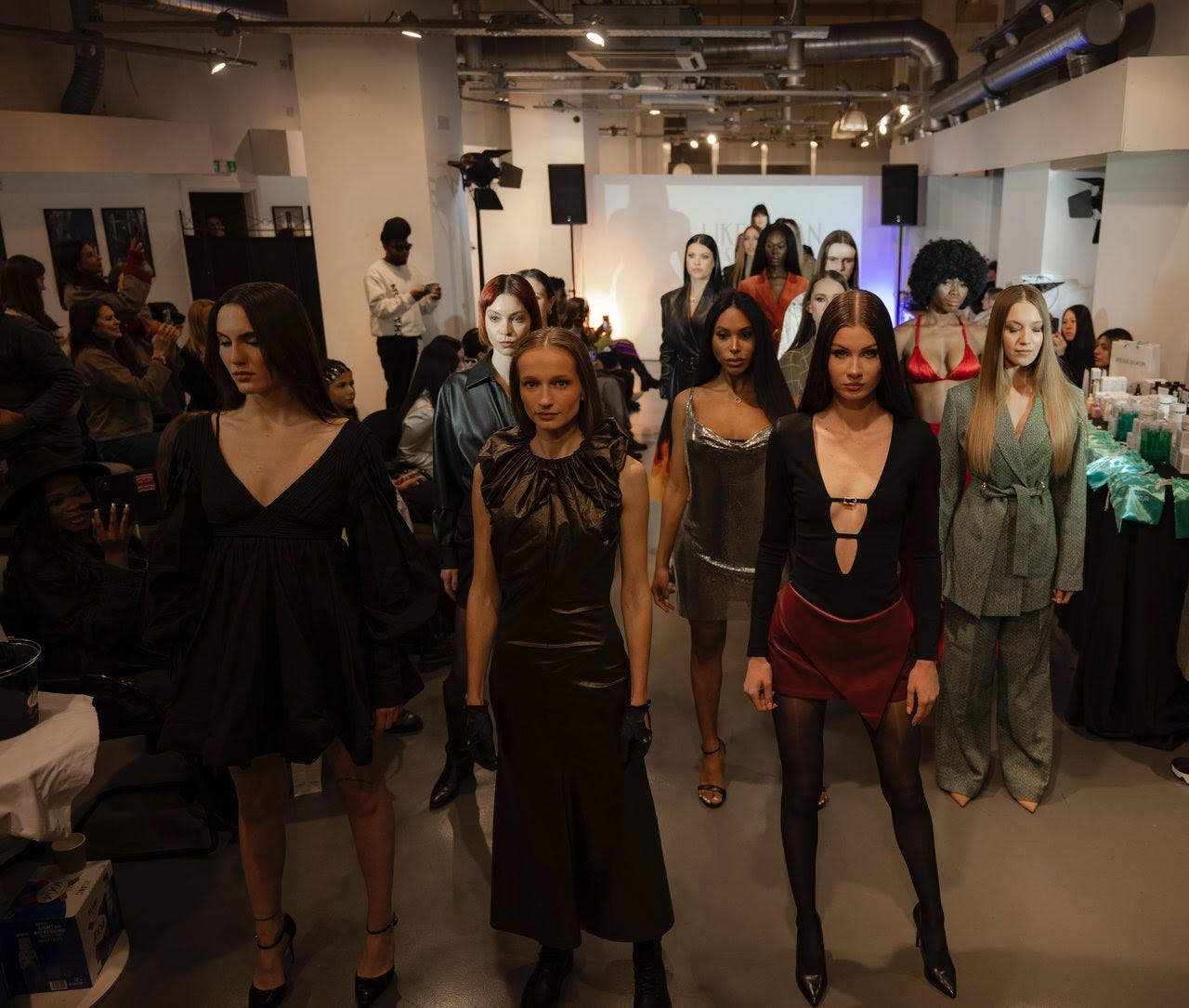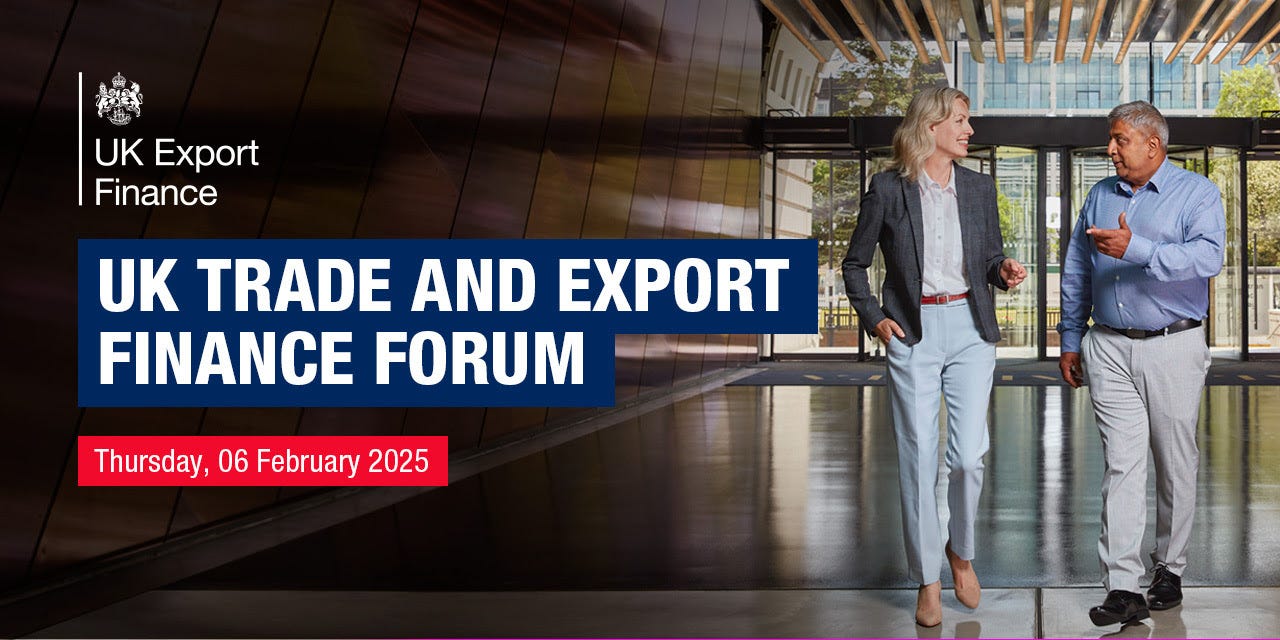Black Friday and the True Cost of Fashion Discounts
PLUS: Listen to our latest podcast episode with Baroness Lola Young, discussing her book which is released this Thursday

By Alix Coombs
Each November, Black Friday sales sweep the world into a frenzy, promising consumers unmissable discounts and sending sales skyrocketing. I’m sure we’ve all been seeing it for weeks now as targeted advertising has permeated our social media and the marketing emails have come flooding in. Traditionally an American concept, Black Friday has now spread through the rest of the world. For many, it’s an opportunity to snag deals, often on clothing, at prices that seem too good to be true. But beneath the glossy sales banners and the rush for bargains lies a sobering reality: the immense human and environmental costs of fast fashion, magnified during this shopping frenzy.
According to research this month by PwC, UK consumers are projected to spend a staggering £7.1 billion this Black Friday, up 37% from last year’s spend of £5.2 billion. Despite how positive the quick cash injection may seem for the economy, the toll of Black Friday on the planet is staggering. In the UK alone, it’s estimated that 300,000 tonnes of clothing are sent to landfill each year, much of it hastily purchased during sales like these. The human cost is equally devastating. Many garments sold at rock-bottom prices are made by workers in low-wage countries, working in unsafe conditions for below a living wage. With 38% of shoppers naming fashion as their top spending category for the sales according to PwC, the relentless demand for fast fashion during Black Friday puts further pressure on already exploitative supply chains.
Black Friday encourages overconsumption, feeding the idea that we need more—more clothes, more accessories, more of everything. But how often do we pause to consider whether we truly need the items we’re purchasing? How many of those Black Friday buys end up languishing unworn in wardrobes, discarded, or forgotten?
This year, as Black Friday approaches, we urge you to consider your purchased carefully before rushing out to shop. Shopping mindfully is not just a trend but a necessary shift in how we engage with fashion. Before making a purchase, ask yourself: Do I really need this? Will I wear it often? Does it align with my values? Shopping with intention—choosing fewer, higher-quality pieces that are made ethically and sustainably—can help reduce the harm caused by the industry and allow us to value what we already own. The allure of a bargain will always be strong, but the true cost of fast fashion is far too high. This Black Friday, let’s take a step back, think critically, and shop with care. The planet—and the people who make our clothes—deserve nothing less.
Book & Podcast Recommendation: Eight Weeks by Baroness Lola Young
Releasing on 28th November 2024, Eight Weeks by Baroness Lola Young is a powerful exploration of one woman’s fight for justice, dignity, and equality. A renowned advocate for social change, Baroness Young brings her extensive experience in activism and the arts to this striking narrative. A life peer and one of the first black women in the House of Lords, Baroness Young is celebrated for her work in human rights, sustainable fashion, and addressing structural inequalities.
Her debut book merges these passions with her remarkable storytelling ability. Set during a critical eight-week campaign against systemic injustices, the book weaves an inspiring tale of resilience and determination. The memoir draws deeply from Baroness Young’s experiences in foster care and her unwavering commitment to creating a better future. Expect a narrative as thought-provoking as it is hopeful, addressing themes of activism, identity, and the ongoing struggle for equity.
Baroness Young has long been a supporter of Fashion Roundtable, and we sat down with her a few weeks ago to record our latest podcast exploring her motivations to continue advocating for human rights and the transformation of the fashion industry, and chat about her new book.
Eight Weeks is an essential read for anyone invested in fashion, politics, or social change—a testament to how individual efforts can spark collective transformation. Don’t miss this opportunity to be inspired by a leading voice in progressive action. Mark your calendars for this transformative release!
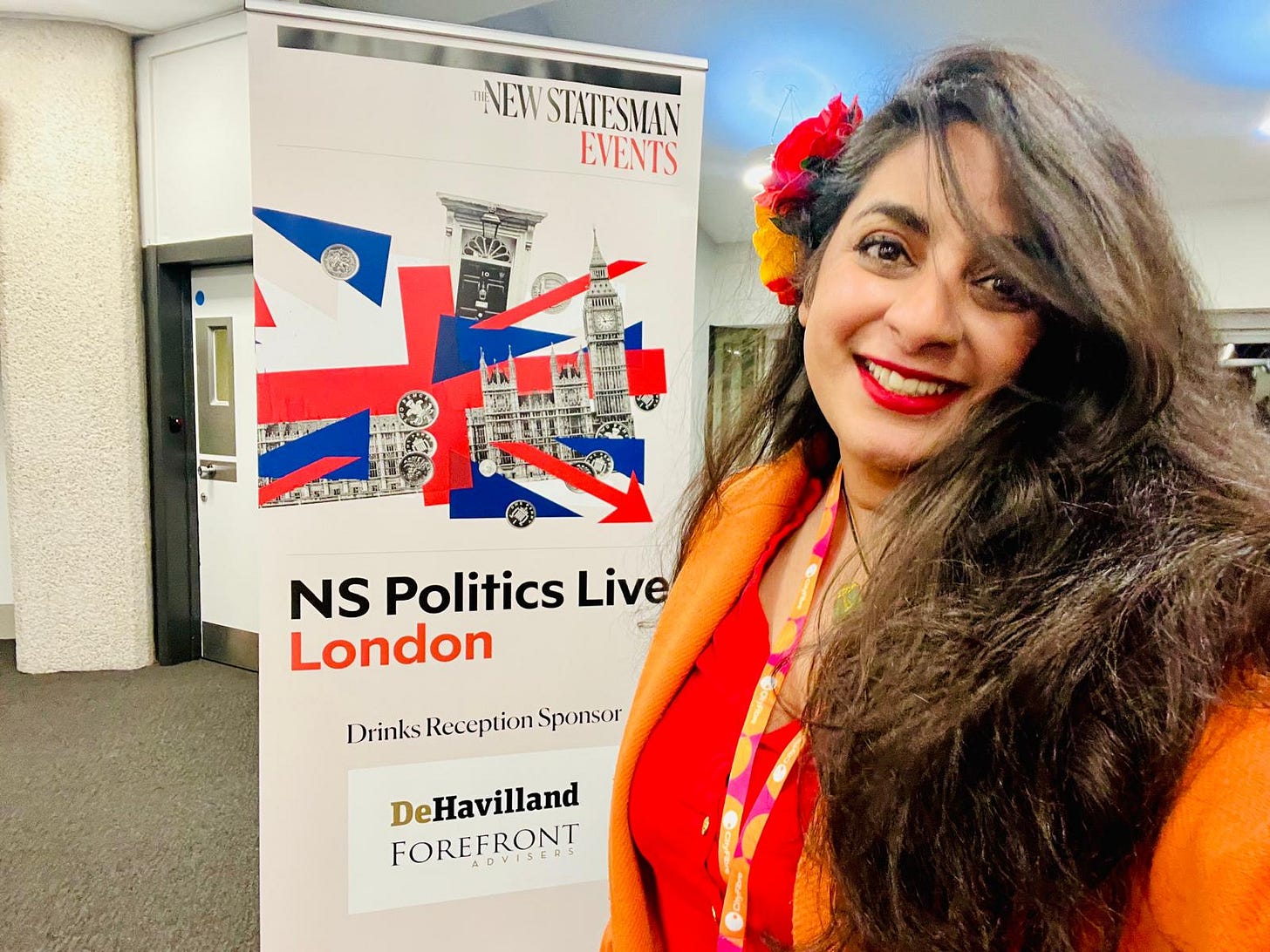
The New Statesman Politics Live Conference 2024: Highlights and Reflections
The New Statesman Politics Live Conference 2024, held in Westminster, proved to be a vital forum for tackling some of the most pressing issues facing the UK today. Bringing together policymakers, industry leaders, and experts, the event aimed to address challenges ranging from achieving net-zero targets to fostering economic growth and innovation. Representing Fashion Roundtable, I attended as a delegate to observe, engage, and consider how these conversations intersect with the creative industries—a sector I found notably absent from the discussions.
Conferences like this are invaluable. They provide a space where policy meets practice, and ideas can be debated, refined, and put forward for meaningful change. The New Statesman deserves recognition for curating such a comprehensive programme. From thought-provoking speeches to in-depth panel discussions, the event highlighted the power of cross-sector dialogue in shaping the UK’s future. However, as much as I was impressed by the breadth and depth of the discussions, it was difficult not to notice the absence of creative industry voices in areas where their contributions could have been transformative.
A Day of Big Ideas
The day began with an engaging conversation with Sir William Browder KCMG, whose expertise in global justice and geopolitics set the tone for a series of informed and forward-looking discussions. Panels throughout the day tackled themes like the net-zero transition, trade and investment, national security, and infrastructure delivery, each addressing critical facets of the UK’s future.
One highlight was the in-conversation with Martin Lewis CBE, who delivered a standout session. His ability to distil complex economic challenges into relatable, compelling insights was unmatched. He brought a grounded perspective to the room, cutting through policy jargon and focusing on the practical realities facing households and individuals today.
The panel on Forging a Green Future was another standout moment. Experts discussed the UK’s position in the global race towards net-zero and the collaborative effort required between policymakers, innovators, and industry leaders. The conversation was sharp, addressing barriers like policy complexity, planning restrictions, and funding limitations, all while pointing to the opportunities that lie in innovation and technology.
Even topics seemingly far removed from fashion, like national security, offered unexpected relevance. Discussions on resilience and preparedness highlighted the importance of robust supply chains and sustainable industrial strategies—concepts that resonate across industries, including fashion.
The session on housing and sustainable development also brought fresh perspectives. Panelists moved beyond discussing housing numbers to explore the ecosystems required for thriving communities. They stressed the importance of integrating hospitals, schools, transport links, and other infrastructure into housing plans, a holistic approach that aligns with the principles of sustainable development.
Throughout the day, the speakers were switched on, the questions insightful, and the focus unwavering. The conference provided a platform for meaningful debate and cross-sector learning, leaving attendees with much to consider.
A Missing Piece in the Puzzle
While the conference excelled in many ways, one glaring gap stood out: the absence of voices from the creative industries. Fashion, for example, contributes £109.9 billion annually to the UK economy and employs over 714,000 people. It’s a global strength for the UK and a driver of innovation, sustainability, and soft power. Yet, no representatives from this sector were present, even in panels where their insights would have been highly relevant.
This lack of representation is particularly striking given the government’s recent emphasis on the creative industries as a growth driver in its Invest 2035: UK’s Modern Industrial Strategy. The strategy outlines the creative sector’s potential to lead in areas like sustainability, trade, and technological innovation—all themes that were central to the day’s discussions.
For an event designed to shape the future of policy and practice, leaving out the creative industries feels like a missed opportunity. These voices were especially needed in panels tackling sustainability, trade, and innovation. Here’s a closer look at where a creative perspective could have made a difference:
1. Forging a Green Future
Sustainability is at the heart of fashion’s transformation. From pioneering circular economy practices to leading innovation in biodegradable materials, the creative industries are uniquely positioned to tackle the net-zero challenge. Yet, this voice was absent—not only from the Forging a Green Future panel but from the conference floor entirely.
Fashion is a £109.9 billion UK industry with sustainability embedded in its evolution. It could have brought actionable ideas to discussions on policy complexity, green growth barriers, and skills shortages. This absence wasn’t just a gap—it was a missed opportunity to connect creative solutions to the broader national strategy.
2. Trade and Investment
Post-Brexit, the creative industries, especially fashion, face significant trade challenges. Rising tariffs, fractured supply chains, and restricted access to international markets have compounded the pressure on SMEs. But these same industries hold immense potential for growth through exports and global partnerships.
In panels on trade and investment, creative voices could have highlighted how to navigate these barriers. From advocating for streamlined customs processes to promoting UK craftsmanship abroad, the sector has solutions rooted in innovation. Their absence was a quiet reminder that their struggles—and opportunities—deserve more attention.
3. Building a Nation of Innovators
Innovation in fashion is redefining the industry. AI tools are shaping design processes, immersive technologies are revolutionising retail, and R&D into sustainable textiles is reshaping manufacturing. These advancements align perfectly with the ambition to make the UK a “science superpower.”
Yet, the Building a Nation of Innovators panel lacked creative industry representation. This sector thrives on innovation and international collaboration, but its contributions were missing from conversations on investment, tech skills, and global competitiveness. The absence of these perspectives left a critical gap in what could have been a richer dialogue.
Conclusion
The New Statesman Politics Live Conference 2024 was a standout event, addressing critical issues with depth and clarity. Yet, the glaring absence of creative industry voices left a significant gap. Fashion and the wider creative sector contribute billions to the UK economy and lead in innovation, sustainability, and global influence—making their inclusion not just desirable, but essential.
To shape a truly resilient and competitive future, policymakers and organisers must actively bring these perspectives into the room. Representation is not symbolic; it drives solutions and innovation. The creative sector holds untapped potential to enrich debates on sustainability, trade, and technological advancement. Let’s ensure their voices are heard—building a future that’s as inclusive as it is innovative.
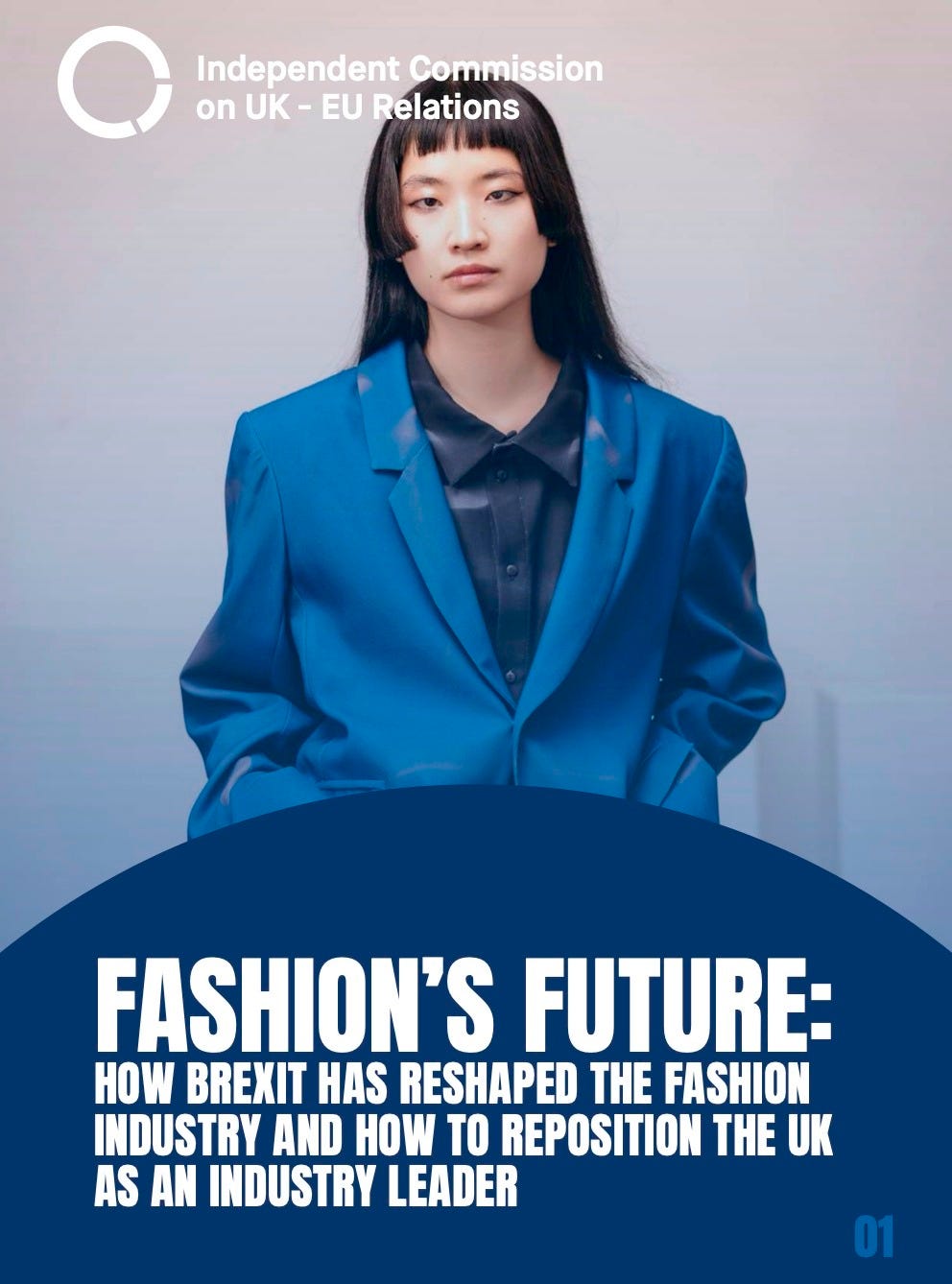
Our latest Report: Fashion’s Future: How Brexit Has Reshaped The Fashion Industry And How To Reposition The UK As An Industry Leader
Fashion’s Future: How Brexit Has Reshaped The Fashion Industry And How To Reposition The UK As An Industry Leader’ outlines the industry’s most pressing challenges and offers policy recommendations for recovery and growth.
In partnership with the Independent Commission on UK-EU Relations, Fashion Roundtable is contributing to a broader series of reports that will inform a final publication, to be presented to both UK and EU governments at events in London and Brussels later this year. This is a critical opportunity to bring the voice of the fashion industry directly into the policy spaces in both the UK and the EU, advocating for the changes necessary to enable the British fashion industry to thrive once more. By joining this collaborative effort, we hope to create a more supportive environment for UK fashion businesses, ensuring their continued success on the global stage.
Read the latest press on our ‘Fashion’s Future’ report:
Job Opportunity: Assistant Curator at Fashion Museum Bath
Are you passionate about the history of fashion and how it connects with people? Do you dream of contributing to an exciting new chapter for Bath’s heritage?
Fashion Museum Bath are looking for an Assistant Curator to play a key role in the development of the new Fashion Museum in Bath’s city centre.
Fashion Discover London: A Celebration of Street Style and Cultural Beauty
On 20th November, the official opening ceremony of the Multicultural Art, Craft and Fashion Fair ‘Fashion Discover London’, took place, setting the stage for a truly inspiring evening. A special highlight of the event was an exclusive fashion show presented by the Ukrainian Fashion Department, showcasing unique designs that blended tradition with modern elegance.
The event featured the presentation of photo from a unique photography competition involving seven creative teams, including photographers, models, make-up artists, hair stylists, stylists and brands. These teams captured stunning fashion photography across iconic street-style locations in London, highlighting not only the elegance of their chosen outfits, but also the breathtaking charm of London itself.
Volkova PR & Fashion & Talent Agency welcome you to get inspired and buy Christmas gifts from various Ukrainian brands until the 20th of December.
Event: Join business and finance leaders at the UK Trade and Export Finance Forum, February 2025
After a transitional year, many businesses may be considering their plans for 2025 and beyond. The UK Trade and Export Finance Forum provides UK and overseas businesses with the chance to meet leaders in industry, finance and government and learn about financial support that could enable your business to win new opportunities.
Join Tim Reid, Chief Executive of UK Export Finance (UKEF) and over 750 senior attendees for a full day of engaging sessions and networking, providing you with updated insight and new business connections to support you in your export journey.




